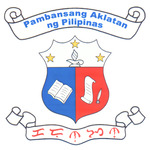The APPLICATION OF PRAGMATICS IN EVALUATING DISCOURSE IN FICTION FOR THE LITERATURE CLASSROOM
Abstract
Discourse markers (DMs), an open class of syntactically optional, non-truthconditional connective expressions, help the readers organize, interpret, and evaluate the information. The study focused on the DMs found in Palanca One - Act Plays through pragmatic analysis, which aimed to offer a Pragmatic literary framework to analyze Philippine One-Act Plays in the literature classroom. In addition, this is to propose an innovative way of analyzing literary text, other than the usual and conventional way of analysis (i.e., analyzing the elements). The researcher used Andersen’s framework on the Pragmatic functions in analyzing the ten Palanca One-Act Plays from Carlos Palanca Memorial Awards for Literature to achieve that goal. By analyzing the one-act plays, the researcher found the prominence of DMs in written form, such as in plays. The study concluded that DM is multifunctional as it serves different functions in different contexts and displays several pragmatic features. This study also proved that pragmatics could be a springboard to analyze fictional discourse in the literature classroom where the proposed framework could be applied. Further, analyzing the literary discourse using the Pragmatic lens would depend on how the readers comprehend their use in specific situations. However, the readers will arrive at the writer's intended meaning by applying the proposed framework for evaluating the discourse in fiction through pragmatic analysis.









